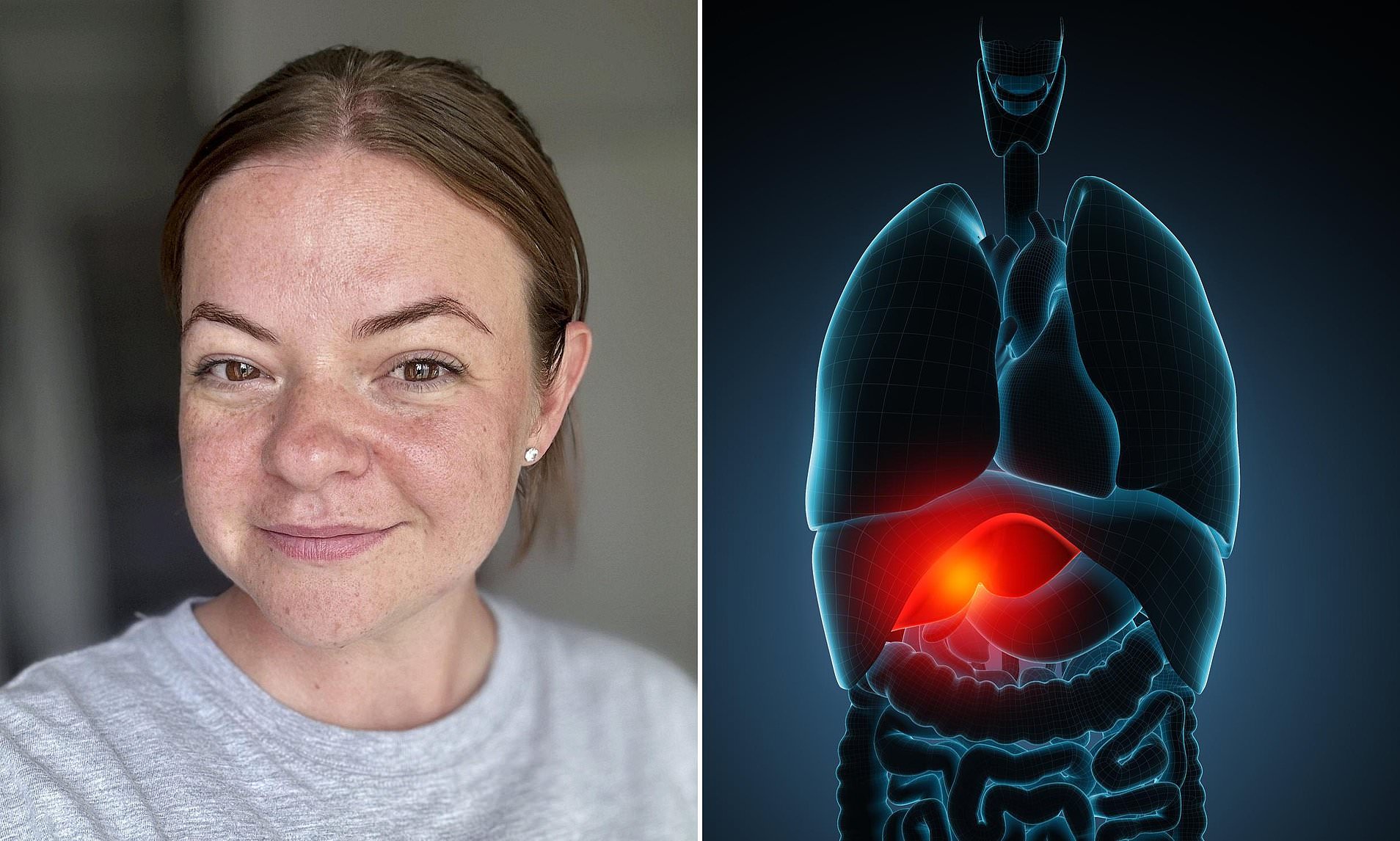-
READ MORE: Post-booze sign that could mean you’re at risk of pancreatic cancer
A mother-of-two who developed organ damage after drinking several cans of Red on a daily basis has warned against getting ‘hooked’ on the energy drinks.
Lucy Parker, 35, from
Perth
in Australia, initially booked in for a medical scan to investigate pain she’d been having in her thighs.
While the cause of this was revealed to be an ovarian cyst, the scan also revealed signs of serious harm on her liver.
Images revealed the vital organ had an extreme build-up of fat which—if left to progress—can lead to organ failure as well as an increased risk of
cancer
.
Ms Parker, who is a healthy weight, blamed her habit of drinking three Red Bulls per day, equivalent to consuming 81g of sugar per day (the equivalent of nearly two and a half
Mars
bars), for the problem.
She’s since quit the energy drinks altogether and said follow-up scans have shown signs her liver is recovering.
The creative director for a marketing agency admitted she had been ‘addicted’ to Red Bull.
‘If I knew I didn’t have a Red Bull in the fridge before I went to bed I would drive out to go and get one or figure out how to get one first thing in the morning,’ she said.
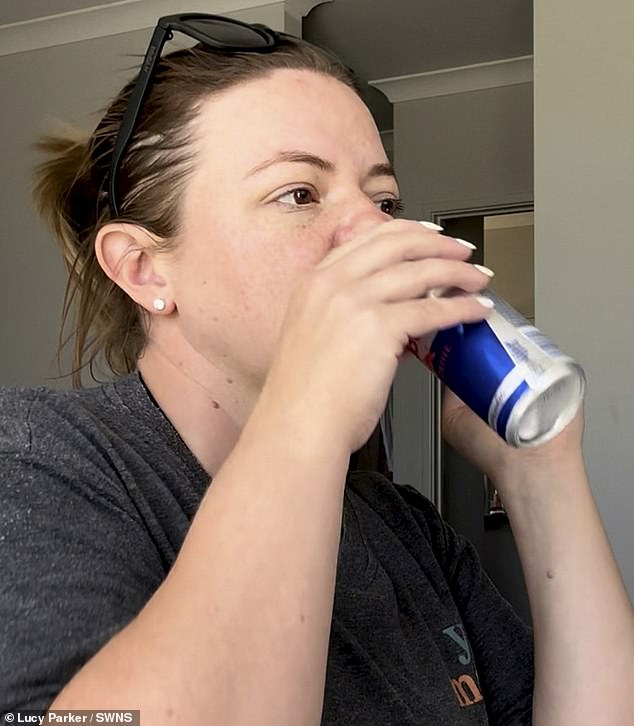
‘I was having 81 grams of sugar a day in just those drinks.
‘When you look at it on a scale there’s no way you can eat that much sugar, it would make you sick.’
The NHS advises that adults should have less than 30g of sugar per day, meaning Ms Parker was consuming nearly triple the recommended maximum.
She added that even her daughters had noticed her reliance on the popular energy drink.
‘Even my two kids on Mother’s Day at school when they had to write down things about their mum they said “my mum’s favourite drink is Red Bull”,’ she said.
Recalling the moment medics gave her the scan results earlier this year, Ms Parker said it was mixture of relief followed by shock.
‘Doctors were like “this is what’s shown up-there’s a cyst on your ovary we’ll keep an eye on but that’s the not the thing we’re worried about”,’ she said.
‘They told me “There’s a lot of fat around your liver”.
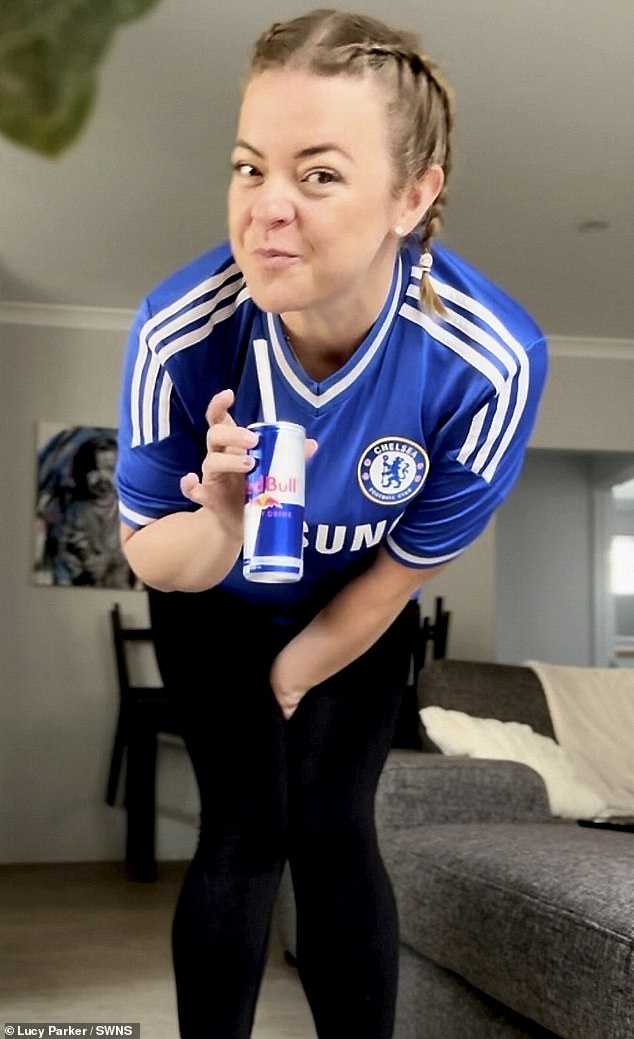
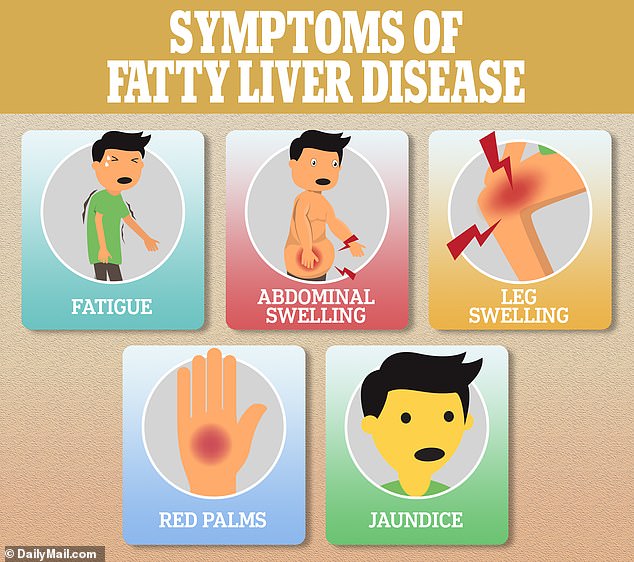
‘They said it’s basically where fat builds up around the liver and it’s not able to work as well as it should.’
While this toxic build-up of fat can be caused by drinking large amounts of alcohol, tests later revealed her condition was specifically non-alcoholic fatty liver disease.
This is a similar condition which is most commonly seen in overweight or obese individuals, particularly those with a lot of fat around their waist.
In its early stages it doesn’t trigger any noticeable symptoms, but medics can detect it during scans performed for other reasons, as in Ms Parker’s case.
If left to progress the disease causes the liver to suffer increasing damage from inflammation, leading to internal scarring of the organ which make it works less effectively.
As the liver, which helps with digestion and filtering out toxins, shuts down, patients can begin to experience dull aching pain in their abdomen, extreme fatigue, weight loss and weakness.
At the most severe stage this damage becomes permanent, and organ will begin to fail and become at high risk of developing tumours.
Ms Parker said that upon getting the diagnosis she immediately quit drinking Red Bull.
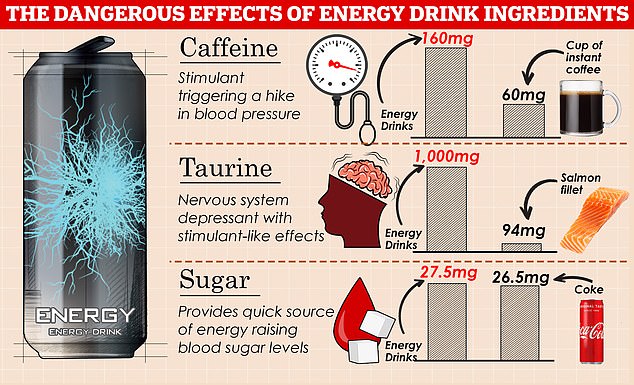
And a subsequent scan held six weeks later showed this was already showing results.
Ms Parker said: ‘My doctor said “whatever you have done between the last session and now is working”.
‘I just said “I’ve stopped drinking the Red Bull”.
‘She told me to keep doing that and in six months’ time we will have reversed it hopefully.’
Ms Parker said she had no ‘no symptoms’ prior to her diagnosis and urged others with a similar love of energy drinks to get checked.
‘I had no pain, no nothing,’ she said.
‘If someone reading this is drinking the same amount of energy drinks for that period of time I would suggest they get a blood test.’
She added this was particularly the case for fellow people with Attention-deficit/hyperactivity disorder (ADHD) who may be using energy drinks to ‘calm down’.
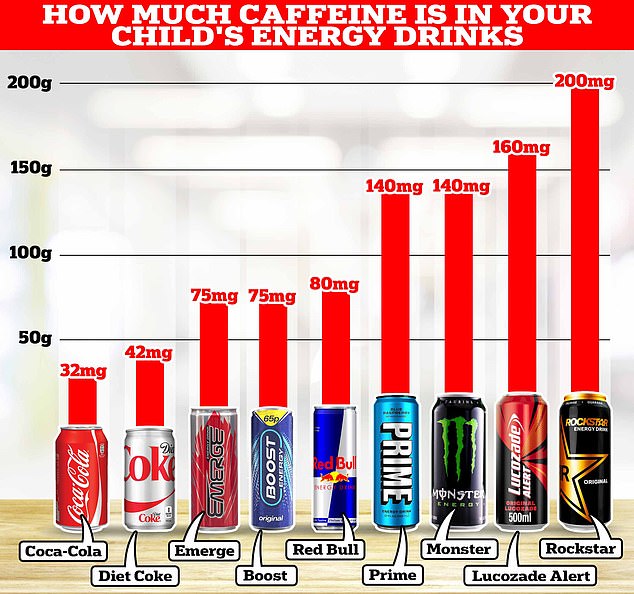
‘If you have ADHD it just does the opposite to what it would do for a neurotypical person,’ she said.
‘It calms me down…it puts everything into check and helps me get through the day.’
Official data shows 345 Britons died from non-alcoholic fatty liver disease in 2023, a slight rise from the pervious year’s 323 with experts noting the rate had risen significantly since the Covid pandemic.
Ms Parker’s warning comes after the Government announced plans
last year
to ban under-16s from buying energy drinks due to concerns they are harming young people’s health.
Many supermarket chains across the country already have a voluntarily ban on selling the products to minors.
But Prime Minister Sir
Keir Starmer
said his party would make this mandatory in the run-up to the General Election in 2024.
Drinks such as Red Bull, Prime and Monster can have up to 150mg of caffeine, almost double that of a black coffee.
With some brands available for as little as 25p a can, many of the energy boosting drinks can be cheaper than bottled water and are a popular pick-me-up among young people.
Read more

